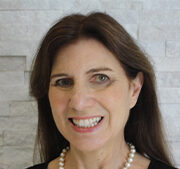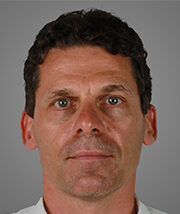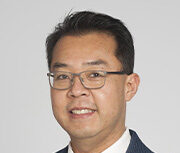touchSATELLITE SYMPOSIUM Clinical care pathway for Alzheimer’s disease: Driving improvements in diagnosis
Watch expert faculty highlight the value of an early and accurate diagnosis of Alzheimer’s disease, provide practical insights into current and emerging diagnostic tools, and discuss the benefits of person-centred care to optimize outcomes.

Dr Sharon Cohen
Toronto Memory Program, Toronto, ON, Canada
CHAIR
Panelists:
Dr Sharon Cohen introduces this touchSATELLITE SYMPOSIUM on the importance of establishing a clear diagnostic pathway and patient-centred care for Alzheimer’s disease.
Dr Sharon Cohen, a behavioural neurologist, discusses the importance of a timely and accurate diagnosis of AD and the potential impact of early treatment with disease-modifying therapies on disease progression and patients’ life.
The panel discusses the case of Charlotte, a 68-year woman with mild cognitive impairment and a family history of AD; followed by answers to questions submitted by the live audience. To see the patient case and audience questions, please view the downloadable slides.
Prof. Sven Haller, a neuroradiologist specialized in advanced neuroimaging for neurodegenerative diseases, provides practical insights into current and emerging diagnostic tools for AD and how to utilize them to achieve an early and accurate diagnosis.
The panel discusses the case of Margaret, a 74-year woman with memory loss, confusion and progressive cognitive impairment; followed by answers to questions submitted by the live audience. To see the patient case and audience questions, please view the downloadable slides.
Dr Ronan Factora, a geriatrician with a special interest in dementia and related disorders, highlights the importance of collaborative patient-centred care and the role of the multidisciplinary dementia care team in supporting patients along the AD continuum.
The panel discusses the case of Stephen, an 87-year man with confusion, memory loss and multiple comorbidities; followed by answers to questions submitted by the live audience. To see the patient case and audience questions, please view the downloadable slides.
The multidisciplinary panel summarizes and discusses key learnings from the symposium.
Overview & Learning Objectives
Overview
In this activity, leading experts in neurology, geriatrics and neuroradiology come together at the World Congress of Neurology (WCN) 2023 to highlight the importance of a timely and accurate biological diagnosis of Alzheimer’s disease (AD) and provide practical insights into current and emerging diagnostic tools. The expert panel goes on to discuss the importance of patient-centred care and explore the role of the dementia care team in supporting the patient along the AD continuum.
This activity is jointly provided by USF Health and touchIME. read more
Target Audience
This activity has been designed to meet the educational needs of neurologists, Alzheimer’s disease specialists and other HCPs involved in the management of Alzheimer’s disease.
Disclosures
Faculty
Dr Sharon Cohen discloses: Grants/research support from AbbVie, AgeneBio, Alector, Alnylam Pharmaceuticals, Alzheon, Anavex Life Sciences, Biogen, Cassava Sciences, Eisai, Eli Lilly, Green Valley, Janssen, Novo Nordisk, RetiSpec, Roche and UCB Biopharma. Consultancy fees from Alnylam Pharmaceuticals, Biogen, Bristol-Myers Squibb, Cassava Sciences, Cognivue, Cogstate, Eisai, Eli Lilly, INmune Bio, Lundbeck, Novo Nordisk, Parexel, ProMIS Neurosciences, RetiSpec, Roche and SciNeuro Pharmaceuticals.
Prof. Sven Haller discloses: Consultancy fees from HealthCare Konnect (HCK) and Wyss Center.
Dr Ronan Factora discloses: Stock/Shareholder fees from Pfizer.
Content reviewer
Danielle Walker, DNP, APRN, AGNP-C has no interests/relationships or affiliations to disclose in relation to this activity.
Touch Medical Directors
Adriano Boasso has no financial interests/relationships or affiliations in relation to this activity.
USF Health Office of Continuing Professional Development and touchIME staff have no financial interests/relationships or affiliations in relation to this activity.
Requirements for Successful Completion
In order to receive credit for this activity, participants must review the content and complete the post-test and evaluation form. Statements of credit are awarded upon successful completion of the post-test and evaluation form.
If you have questions regarding credit please contact cpdsupport@usf.edu.
Accreditations
Physicians
This activity has been planned and implemented in accordance with the accreditation requirements and policies of the Accreditation Council for Continuing Medical Education (ACCME) through a joint providership of USF Health and touchIME. USF Health is accredited by the ACCME to provide continuing medical education for physicians.
USF Health designates this enduring material for a maximum of 1.5 AMA PRA Category 1 CreditTM. Physicians should claim only the credit commensurate with the extent of their participation in the activity.
Advanced Practice Providers
Physician Assistants may claim a maximum of 1.5 Category 1 credits for completing this activity. NCCPA accepts AMA PRA Category 1 CreditTM from organizations accredited by ACCME or a recognized state medical society.
The AANPCP accepts certificates of participation for educational activities approved for AMA PRA Category 1 CreditTM by ACCME-accredited providers. APRNs who participate will receive a certificate of completion commensurate with the extent of their participation.
Date of original release: 21 November 2023. Date credits expire: 21 November 2024.
If you have any questions regarding credit please contact cpdsupport@usf.edu.
Learning Objectives
After watching this activity, participants should be better able to:
- Summarize the value of an early and accurate Alzheimer’s disease diagnosis for optimal patient outcomes in an era of disease-modifying therapies
- Outline the steps to diagnosis of Alzheimer’s disease and the recommended tests and assessments to support a biological diagnosis
- Assess the role of the multidisciplinary team in supporting a patient with Alzheimer’s disease along the disease continuum
Faculty & Disclosures

Dr Sharon Cohen
Toronto Memory Program, Toronto, ON, Canada
Dr Sharon Cohen is a behavioural neurologist and the medical director of the Toronto Memory Program, a community-based medical facility, which she established in 1996 for the purpose of enhancing the diagnosis and treatment for individuals with Alzheimer’s disease and related disorders. read more
Dr Cohen has over 30 years of experience in clinical research and has been a site principal investigator for over 180 pharmacological trials in dementia, including phase I trials. She represents Canada on international advisory boards and steering committees, and is a consultant to a wide range of stakeholders, including government organizations and patient advocacy groups. Dr Cohen is a frequent lecturer and contributes to media events. She is known for her advocacy for individuals with neurodegenerative diseases.
Alongside her academic and hospital appointments, Dr Cohen has always chosen to practise in the community, in keeping with her belief that dementia care and clinical research are best offered in the real-world setting.
Dr Sharon Cohen discloses: Grants/research support from AbbVie, AgeneBio, Alector, Alnylam Pharmaceuticals, Alzheon, Anavex Life Sciences, Biogen, Cassava Sciences, Eisai, Eli Lilly, Green Valley, Janssen, Novo Nordisk, RetiSpec, Roche and UCB Biopharma. Consultancy fees from Alnylam Pharmaceuticals, Biogen, Bristol-Myers Squibb, Cassava Sciences, Cognivue, Cogstate, Eisai, Eli Lilly, INmune Bio, Lundbeck, Novo Nordisk, Parexel, ProMIS Neurosciences, RetiSpec, Roche and SciNeuro Pharmaceuticals.

Prof. Sven Haller
Centre d’Imagerie Médicale de Cornavin, Geneva, Switzerland
Prof. Sven Haller is a neuroradiologist and medical director at the Centre d’Imagerie Médicale de Cornavin in Geneva, Switzerland, and visiting associate professor at Uppsala University, Sweden, and Beijing Tiantan Hospital, China. read more
His main focus, both in clinical practice and clinical trials, is advanced neuroimaging techniques, particularly advanced magnetic resonance imaging (MRI) such as functional MRI, real-time functional MRI neurofeedback, arterial spin labelling and susceptibility weighted imaging, notably in the domain of neurodegenerative and neurovascular diseases.
Prof. Haller has published more than 200 scientific articles and book chapters, and he has received several distinctions, including the Lucien Appel prize for neuroradiology, the Founders Award of the European Society of Neuroradiology (ESNR). He has been awarded the Swiss Society for Radiology prize, the German Society of Neuroradiology prize and twice awarded the Swiss Society of Neuroradiology prize. He is section editor for advanced imaging in Neuroradiology, the official journal of the ESNR, section editor for neurodegeneration in the new textbook on neuroradiology from the ESNR, chair of the ESNR Advanced Imaging group and co-organizer of the Advanced Imaging course by the ESNR and the European Society for Magnetic Resonance in Medicine and Biology.
Prof. Sven Haller discloses: Consultancy fees from HealthCare Konnect (HCK) and Wyss Center.

Dr Ronan Factora
Cleveland Clinic, Cleveland, OH, USA
Dr Ronan Factora is a geriatric medicine specialist, programme director for the Geriatric Medicine Fellowship at the Medicine Institute, Center for Geriatric Medicine, Cleveland Clinic in Cleveland, Ohio, USA. He is also associate professor of medicine at the Cleveland Clinic Lerner College of Medicine at the Case Western Reserve University in Cleveland. read more
His primary clinical interests include dementia and related disorders, normal pressure hydrocephalus, falls and elder abuse.
Dr Factora is a member of many professional organizations, including the American Geriatrics Society, and is a fellow of the American College of Physicians.
Dr Ronan Factora discloses: Stock/Shareholder fees from Pfizer.

REGISTER NOW FOR FREE ACCESS TO
- 1000+ topical and insightful peer-reviewed journal articles
- 100+ hours of bite-sized congress highlights
- 8 major therapy areas packed with the latest scientific advances
- 150+ specialties offering learn-on-the-go medical education
- + Concise email updates and newsletters so you never miss out
